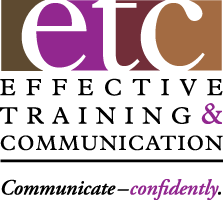(As we gradually emerge from Covid 19 WFH, some people begin looking for better jobs. So, it made sense to offer a second helping of this excellent piece from two years ago. Enjoy this trip down memory lane.)
Are any of you seeking a great new job with a great employer, so good that you would have left the best job you ever had to take it? Will you know it when you see it? Will you know where to find it?
If you didn’t answer ‘yes’ to the third question, here’s a great exercise that will help you know your ideal next jobs and employers … and how to find them. It’s time-consuming and difficult, but well worth your effort. I’ve been using it very successfully for years with my volunteer job seeker group presentations.
- Define what you do the best – list your top 10 specific skills, talents and traits you bring to your next employer. How do you know you’re good at them?
- Now, Force Rank your list – something will be #1 and something #10.
- Define what you like to do the most at work – list the top 10 specific work-related tasks or processes you enjoy the most. Why do you like them?
- Now, Force Rank that list, too – something will be #1 and something #10.
- Look at the top four or five items on each list – they describe your ideal blend of talents and passions. Build your next job around them.
- Translate those items – not necessarily all of them in each case – into specific job functions, so you have something concrete to look for.
- Now, define those Objective Criteria describing your ideal next employer that are important to you – details about location, size, industry, growth, salary guidelines, health care and other benefits, etc., Why are they important?
- Force Rank this list.
- Next, define the Subjective Criteria describing your ideal next employer that are important to you – details about culture, values, work-life balance, integrity, etc., Why are these important to you?
- Force Rank this list.
- Look at the top four or five items on each list – they describe your ideal next employer.
- Now, identify organizations that meet these important criteria as much as possible. Where will you find out the information you need about them to be sure they’re ideal for you?
This whole complicated and time-consuming process can now drive your pro-active and focused job search networking and information-gathering. You can network with people you know or meet to find employers that match your profile. Also network to find people inside those organizations to connect with and discuss future job opportunities.
Your odds of successfully landing something closer to your Ideal Job at your Ideal Employer should be much better than only using traditional reactive and passive job searching methods, like posting resumes, responding to job ads and generic networking. Best wishes for success!
